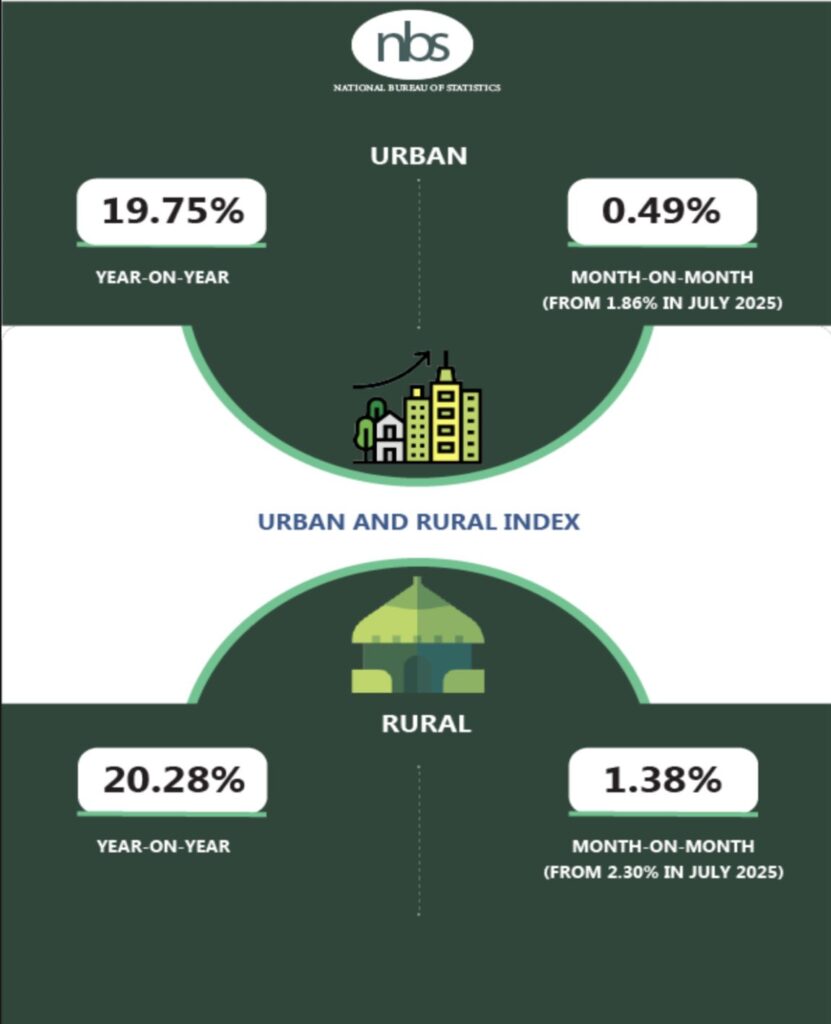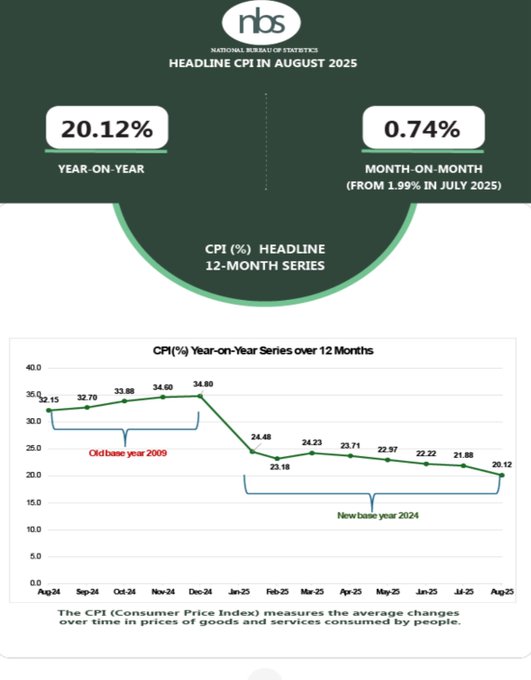
Nigeria’s headline inflation rate slowed to 20.12% in August 2025, down from 21.88% in July, according to the National Bureau of Statistics (NBS). On a month-on-month basis, the headline inflation rate stood at 0.74%, representing a sharp decline from 1.99% recorded in July. Food inflation, however, remained elevated at 1.65% month-on-month, underscoring continued pressure on household consumption.

State-level data showed significant variations in inflation trends. Ekiti (28.17%), Kano (27.27%), and Oyo (26.58%) recorded the highest year-on-year increases, while Zamfara (11.82%), Anambra (14.16%), and Enugu (14.20%) had the slowest rises. On a month-to-month basis, Yobe (9.20%), Katsina (8.59%), and Sokoto (6.57%) posted the steepest increases, whereas Enugu (-5.32%), Taraba (-3.64%), and Nasarawa (-3.56%) recorded declines.
The NBS also highlighted disparities between urban and rural inflation. Urban inflation rose 19.75% year-on-year and 0.49% month-on-month, while rural inflation stood at 20.28% year-on-year and 1.38% month-on-month. Analysts say the easing of headline inflation reflects base effects and slowing price increases in some categories, but food costs and regional disparities remain a concern for policymakers.
